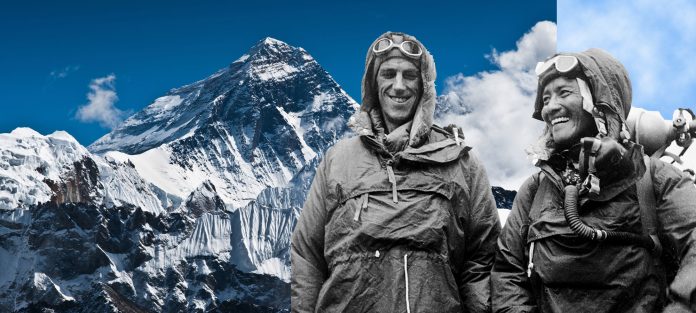Mount Everest, also known as Sagarmatha in Nepal and Chomolungma in Tibet, is the ultimate challenge for mountaineers. Rising 29,029 feet (8,848 meters) above sea level, it’s the highest mountain on Earth and has been attracting adventurers for decades. Climbing Mount Everest is not only a physical feat but also a mental and emotional journey that requires months of preparation, dedication, and persistence. In this blog post, we’ll dive into the history and challenges of climbing Mount Everest and provide practical tips for those who are planning to embark on this incredible adventure.
History of Mount Everest:
Mount Everest was first officially measured in 1856 and named after Sir George Everest, a British surveyor who had been mapping the Indian subcontinent. However, it wasn’t until the early 20th century that the mountain started to capture the attention of adventurers. In 1921, a British expedition led by George Mallory attempted to climb Mount Everest but failed. Mallory famously replied “Because it’s there” when asked why he wanted to climb the mountain, and his spirit has since inspired countless climbers.
In 1953, Sir Edmund Hillary of New Zealand and Tenzing Norgay, a Sherpa from Nepal, became the first people to reach the summit of Mount Everest. Since then, thousands of people have attempted to climb the mountain, and hundreds have lost their lives in the process.
Challenges of Climbing Mount Everest:
Climbing Mount Everest is an incredible challenge that requires physical strength, mental resilience, and the ability to cope with extreme altitude and weather conditions. The climb can take several weeks, and climbers need to acclimatize to the high altitude by spending time at different camps along the way.
One of the biggest risks of climbing Mount Everest is altitude sickness, which can be life-threatening. Climbers need to be aware of the symptoms of altitude sickness and take precautions to avoid it, such as staying hydrated and using supplemental oxygen.
Another challenge of climbing Mount Everest is the extreme weather conditions. Temperatures can drop to -40°C (-40°F), and winds can exceed 100 mph. Climbers need to be prepared for these conditions and have appropriate gear, such as down jackets and sturdy boots.
Practical Tips for Climbing Mount Everest:
If you’re considering climbing Mount Everest, it’s important to prepare both physically and mentally. Here are some practical tips to help you get started:
- Train for at least six months before attempting the climb. This should include a combination of cardio, strength training, and endurance exercises.
- Acclimatize properly by spending time at different camps along the way. This will help your body adjust to the high altitude and reduce the risk of altitude sickness.
- Use experienced guides and porters who are familiar with the mountain and can provide valuable support and advice.
- Invest in high-quality gear, including a down jacket, sturdy boots, and a good-quality sleeping bag.
- Be prepared for the extreme weather conditions by packing appropriate clothing and gear, including gloves, hats, and goggles.
Conclusion:
Climbing Mount Everest is an incredible feat that requires physical and mental strength, dedication, and preparation. While the journey is challenging, it’s also a once-in-a-lifetime opportunity to explore one of the most beautiful and majestic places on Earth. By following the tips we’ve provided, you can increase your chances of reaching the summit and create memories that will last a
-By: Kusum Kharel for Land Nepal




